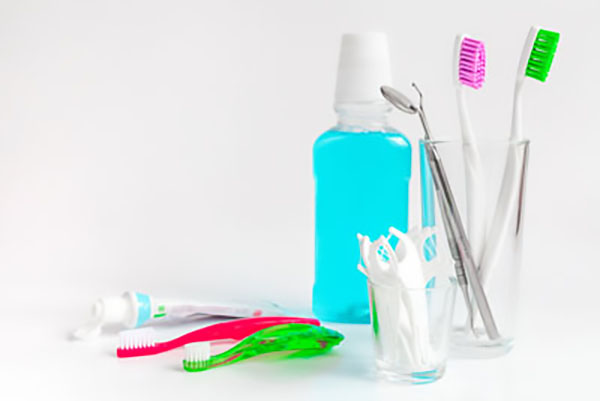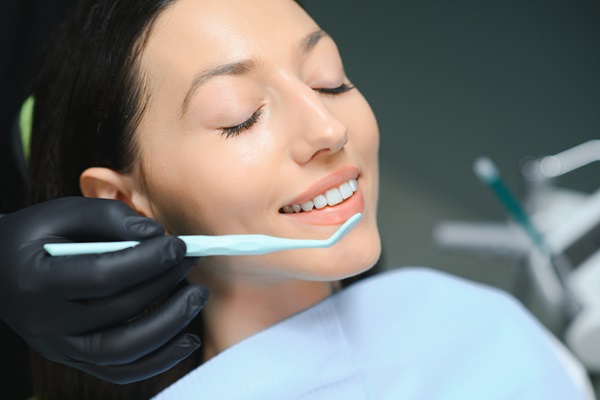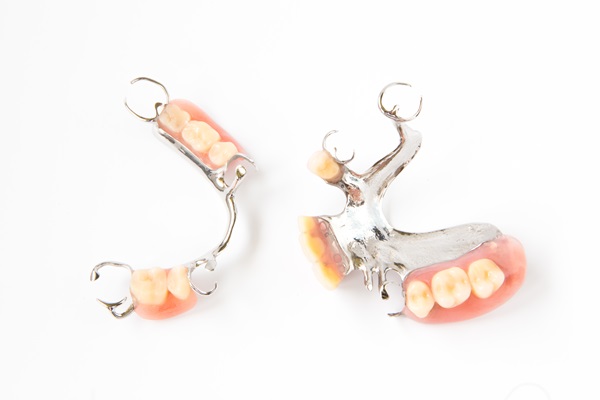The Importance of Oral Hygiene During the COVID-19 Disease Lockdown

Good oral hygiene is more important than ever now because you may not be going to your regular appointments. Under normal circumstances, it is recommended to visit your dentist every six months for cleanings and exams. However, because you may be missing appointments, you should take better care of your teeth than before. Read on to learn why.
Importance of brushing
People who do not bathe often enough will feel greasy or sweaty. They might see skin issues, so it is important to keep the body clean. It is just as important to keep the mouth clean. Some studies have shown that there are more than 700 types of bacteria in the mouth. Some of these are good bacteria that help break down food. Other types are bad and can cause tooth decay.
Over time, the bad bacteria can start to break down the enamel on the teeth. Bacteria can become a sticky film called plaque. It is acidic and will slowly break down the enamel. As the tooth’s hard outer coating weakens, the acid can seep into the patient’s teeth. This is what causes tooth decay or cavities.
Both brushing and flossing can remove plaque from the teeth, as long as it is done properly. The patient should brush at least twice a day for two minutes each time. The more that the patient follows this advice, the less likely tooth decay is to happen. However, the bacteria also target the patient’s gums.
Importance of flossing
The bacteria can also inflame the patient’s gums. Over time, this will also affect the gums that support the patient’s teeth. The first stage of the issue is gingivitis, which involves tender, swollen or red gums. They might bleed when brushing and flossing. Patients who notice this issue should floss and brush more often at home. The earliest stages of gum disease can still be reversed.
However, if left untreated, it can progress to full gum disease. This is known as periodontal disease. The condition often affects the gums supporting the patient’s teeth. The inflamed, red, bleeding gums will become worse. Over time, the gums will start to recede from the teeth.
The larger the amount of gum recession, the more likely it is the teeth will eventually fall out. The bones may also become weaker during this stage. Proper oral hygiene can help patients to avoid this issue. Taking the time to properly floss and brush will help patients have healthier teeth.
Practice good oral hygiene at home
Oral hygiene is more important now than ever. Without it, you may develop cavities or gum disease. Because many dental offices are only seeing emergency patients, you might not get an appointment for weeks. This can cause any potential issues to become worse to the point where home care does not work. Luckily, prevention can go a long way toward helping your teeth remain strong. That will give you one less thing to worry about.
Request an appointment here: https://sandimassedation.com or call San Dimas Family and Sedation Dentistry at (909) 305-2300 for an appointment in our San Dimas office.
Check out what others are saying about our services on Yelp: Read our Yelp reviews.
Recent Posts
Today, with increasing importance placed on dental aesthetics, there are many reasons why one may consider a trip to the cosmetic dentist. The desire for good-looking teeth is important as beautiful smiles are known to contribute to a person's overall well-being and positive self-image. There are many different avenues for fixing an imperfect smile. In…
An article by GlaxoSmithKline Consumer Healthcare states that more than 18 million people wear partial dentures. Anyone who has been considering getting partials to improve their speech, ability to chew, and even their appearance is not alone. It helps to have the proper information beforehand, though. Partials are created from a wide variety of materials, each…
Dental bridges offer a reliable and effective solution for replacing missing teeth. A missing tooth, whether caused by injury, decay, or other dental issues, can impact the health and appearance of your smile. Fortunately, dental bridges can help restore your oral health. Here are five benefits of choosing dental bridges as your tooth replacement option.Dental…
Individuals suffering from damaged or unsightly teeth may benefit from receiving dental crowns. This straightforward and relatively common procedure can help restore the look and function of healthy, natural teeth. While a variety of components may be used to form dental crowns based on the patient's individual preferences and needs, the installation process is usually…


